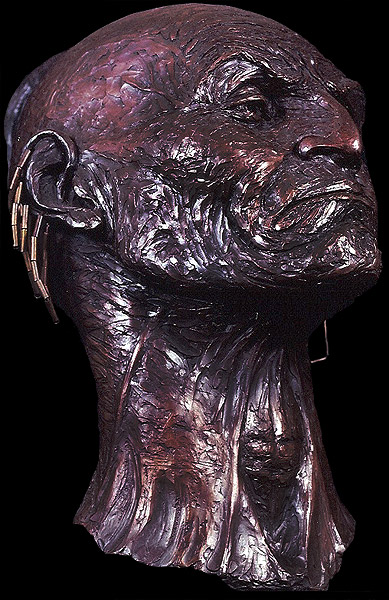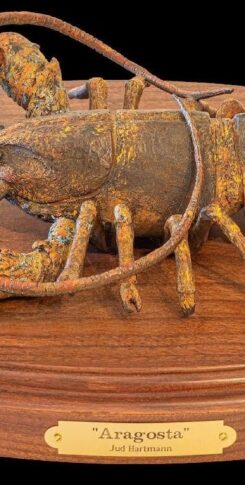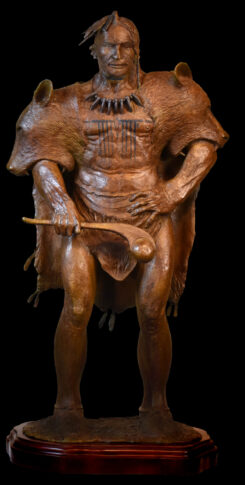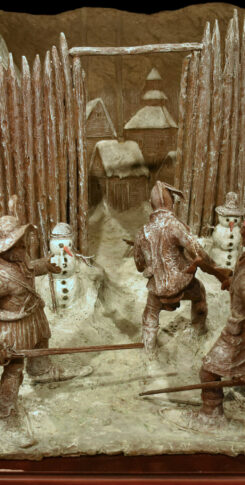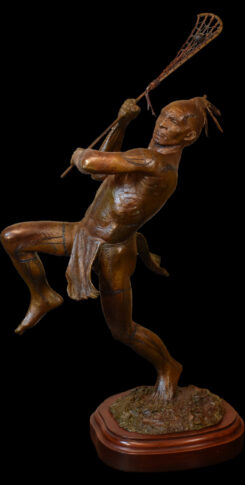Bronze edition: 10 | Height: 24″
“He was an astute old savage, well trained in the arts of Iroquois rhetoric and gifted with the power of strong and caustic sarcasm…He shared with most of his countrymen the conviction that in all the earth there was nothing so great as the league of the Iroquois.”
Francis Parkman (1867)
“If these people are barbarous in deed, they have thoughts worthy of Greeks and Romans.”
Fr. Vimont (1645)
“No nation in America can stand before them … this renders them haughty and insufferable as though all other men were mere brutes.”
Fr. Hennepin (1698)
We may go where we please and trade with whomever we please…if your allies be your slaves then use them as such…but we are born free!”
“After the threatening speech of Mons. de la Barre (gov. of Canada, 1684) Grangula was very much surprised to find the soft words of the Jesuits…turned to such threatening language. This was designed to strike terror into the hearts of the Iroquois; but Grangula, having good information of the sickness and other misfortunes that afflicted the French Army, it was far from having the desired effect. All the time Mons. de la Barre spoke, Grangula kept his eye fixed on his pipe. As soon as the governor had done speaking, he rose up and having walked 5 or 6 times around the circle he spoke standing while la Barre kept to his elbow chair: ‘I honor you Yonnondio! Your interpreter has finished your speech, I now begin mine. My words make haste to reach your ears. Hearken to them! You must have believed when you left Quebec, that the sun had burnt up all the forests which render our country inaccessible to the French or that the lakes had so far overflowed their banks that (we were left prisoners) in our castles. Yes, surely you must have dreamt so and the curiosity of seeing so great a wonder has brought you so far. (May you now) be undeceived…Hear Yonnondio, I do not sleep…I have my eyes open, and the sun discovers to me a great captain at the head of a company of soldiers who speaks as if he were dreaming. My warriors distain a foe as worthless as your army but I have had to restrain my women and children, to keep them from knocking you all on the heads!…Hear Yonnondio what I say: I am the voice of all the Five Nations…we neither depend on Yonnondio (the French) nor on Corlaer (the English). We may go where we please and trade with whomever we please…if your allies be your slaves then use them as such…but we are born free!'”
Cadwallader Colden (1727)
Mons. de la Barre who came to humble the mighty Iroquois, was himself completely humiliated and within a short time was recalled to Paris in utter disgrace.

